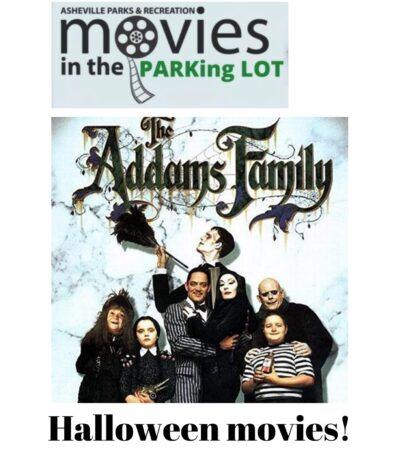Halloween is going to look a little different in Asheville this year because of the COVID-19 pandemic. But you can still celebrate with family and friends safely with this guidance from the N.C. Department of Health and Human Services:
Remember that Gov. Roy Cooper’s Executive Order 163 limits mass gathering to no more than 25 individuals indoors and 50 outdoors. Organizers of the Vermont Avenue Halloween celebration — popular with many families — have not filed an application for a permit to shut down that street in West Asheville.
While the City of Asheville’s Outdoor Special Events Office is accepting applications for special events, the City can only issue permits for events that comply with N.C. Phase 3 guidelines. For the latest guidance, visit this link to the Outdoor Special Events Office Statement Regarding COVID-19.
Any scenario in which many people gather together poses a risk for COVID-19 transmission. Local officials and organizers of Halloween activities should create and implement a plan to minimize the opportunity for COVID-19 transmission.
It is strongly recommended that people do alternative Halloween activities, instead of the traditional door-to-door trick-or-treating, as possible. The guidance below, adapted from the Centers for Disease Control and Prevention’s Halloween Guidance, outlines lower and moderate risk activities, as well as the higher risk activities that should be avoided to help keep our communities safe.
Lower-risk activities
- Have a virtual Halloween costume contest.
- Have a Halloween movie night with people you live with.
- Carving or decorating pumpkins with members of your household and displaying them.
- Carving or decorating pumpkins outside, at a safe distance (more than 6 feet apart), with neighbors or friends.

Asheville Parks & Recreation has 2 Halloween-related movie events, one for the whole family and the other for teens and adults. Both of them are Movies in the PARKing Lot, one on Oct. 15 and the other on Oct. 29, both at A-B Tech. While free, you do have to register.
Oct. 15, The Addams Family
Oct. 29, Chapter 2 - Decorating your house, apartment, or living space.
- Doing a Halloween scavenger hunt where children are given lists of Halloween-themed things to look for while they walk outdoors from house to house admiring Halloween decorations at a distance (children should stay within their household groups).
- Having a scavenger hunt-style trick-or-treat search with your household members in or around your home rather than going house to house.
Moderate-risk activities
Encourage no or low touch trick-or-treating with these ideas:
- Line up individually wrapped goodie bags for families to grab and go while continuing to social distance (such as at the end of a driveway or at the edge of a yard).
o If you are preparing goodie bags, wash your hands with soap and water for at least 20 second before and after preparing the bags.
- Place individual pieces of candy spaced out on a table for families/children to take themselves.
- Gently toss candy to trick or treaters from 6 feet away.
- Use a “candy chute” or tube to pass along candy from the porch to trick or treaters standing 6 feet away.
- Reverse trick-or-treat, where children dress in their costumes and stay at their house or front yard house and neighbors walk or drive by to drop off candy.
- Have a small group, outdoor, open-air costume parade where people are distanced more than 6 feet apart.
- Attend a costume party held outdoors where protective masks are used and people can remain more than 6 feet apart.
- Have an outdoor Halloween movie night with local family friends with people spaced at least 6 feet apart.
- If screaming will likely occur, greater distancing is advised. The greater the distance, the lower the risk of spreading a respiratory virus.
- Lower your risk by following CDC’s recommendations on hosting gatherings or cookouts.
Higher-risk activities
Avoid these activities to help prevent the spread of the virus that causes COVID-19:
- Participating in traditional trick-or-treating where treats are handed to children who go door to door or children take candy from a shared bucket.
- Having trunk-or-treat where treats are handed out from trunks of cars lined up in large parking lots.
- Attending crowded costume parties held indoors.
- Using alcohol or drugs, which can cloud judgment and increase risky behaviors.
Recommendations for Halloween event organizers
The state recommends that event organizers consult the NC DHHS Fall-Related Events Guidance for outdoor activities at farms, pumpkin patches, haunted houses/trails, and agritourism events.
❑ Consistent with Executive Order 163, coordinate with local law enforcement to ensure mass gathering limits (no more than 25 individuals indoors and 50 outdoors) and the 11 p.m. curfew on alcohol sales and mask requirements are enforced.
❑ Consistent with the Governor’s previous Executive Orders, local governments may consider additional measures or restrictions in their efforts to limit large gatherings, enforce mask mandates, or otherwise reduce the risk for viral spread and to keep their communities safe.
❑ Remind families, if they do more traditional door-to-door trick-or-treating, to leave space between themselves and individuals from other households. Encourage families and participants to stay at least 6 feet apart, and to minimize large groups of families trick-or-treating at the same time.
❑ Remind families and participants to wear face coverings when they are or may be within 6 feet of another person, especially if coming to the door or standing on the porch where social distancing is difficult to maintain.
❑ A costume mask (such as for Halloween) is not a substitute for a cloth mask. A costume mask should not be used unless it is made of two or more layers of breathable fabric that covers the mouth and nose and doesn’t leave gaps around the face.
❑ Do not wear a costume mask over a protective cloth mask because it can be dangerous if the costume mask makes it hard to breathe. Instead, consider using a Halloween-themed cloth mask.
❑ Encourage families and participants to use hand sanitizer with at least 60% alcohol after touching shared objects or coughing and sneezing.
❑ For organized events, provide hand sanitizer with at least 60% alcohol for participants, and tissues with trash receptacles for coughing or sneezing.
❑ Families and participants should be encouraged to self-monitor for symptoms such as fever, cough, or shortness of breath and be aware that a person can become infectious before they become ill, or without becoming ill. If they develop symptoms, participants should stay home. More information on how to monitor for symptoms is available from the CDC.
Additional resources
- American Academy of Pediatrics: Halloween Health and Safety Tips
- NCDHHS: North Carolina COVID-19
- CDC: Considerations for Events and Gatherings

